Dark spots: How to Treat Them

As we age, our skin goes through numerous changes, and one of the most frustrating issues many of us women over 50 face is the appearance of dark spots.
Whether we call them age spots, sun spots, or just plain hyperpigmentation, these little patches of discoloration can be frustrating, to say the least.
For many of us, dark spots are more than just a cosmetic issue—they can also affect self-confidence.
If you’ve ever looked in the mirror and felt frustrated by these spots, know that you’re not alone. Dark spots are a common struggle, especially for women with mature skin. The good news is that while they can be tough to treat, there are options available to help lighten them and restore a more even skin tone.
Why Do Dark Spots Happen?

Dark spots occur when some areas of the skin produce more melanin than usual.
Melanin is the pigment that gives our skin its colour.
As we age, our skin becomes more susceptible to uneven melanin production, leading to the formation of these spots. Factors like sun exposure, hormonal changes, and even previous inflammation or injuries can trigger this excess melanin production.
One of the main culprits behind dark spots is prolonged exposure to the sun over the years.
Even if you’ve been diligent about sunscreen in recent years, the damage from past sun exposure can accumulate and eventually show up as dark spots (which is a reminder about how important sunscreen is).
Hormonal changes, especially during menopause, can also play a role in hyperpigmentation.
Additionally, any trauma to the skin, such as cuts, acne, or inflammation, can leave behind dark marks long after the injury has healed.
Why Are Dark Spots So Hard to Treat?
Dark spots can be incredibly persistent. Once they’ve formed, they don’t typically go away on their own, and even with treatment, it can take time to see results.
The reason they’re so hard to treat is that they form deep within the skin, where the excess melanin is produced. Topical treatments often work on the surface layers of the skin, so it requires consistent use and patience to see improvement.
Another challenge is that our skin naturally thins as we age, making it more sensitive and less resilient. This means that aggressive treatments, like chemical peels or lasers, can sometimes do more harm than good, leading to further irritation or even more discoloration.
But don’t lose hope!
There are gentler options available that can help reduce the appearance of dark spots without damaging your skin.
Ingredients That Help Brighten and Even Out Skin Tone

When it comes to treating dark spots, consistency is key, and so is choosing the right ingredients. There are several effective ingredients that can help lighten hyperpigmentation while also supporting the overall health of mature skin.
Rosehip oil
Rosehip oil is rich in vitamins A and C, which are known for their skin-brightening and rejuvenating properties. Vitamin A promotes cell turnover and can help fade dark spots, age spots, and hyperpigmentation.
Vitamin C is a potent antioxidant that also helps to lighten dark spots by inhibiting melanin production, the pigment responsible for those spots.
Our Prebiotic Moisturising Cream is not just about hydration—it's your secret weapon against age spots. Infused with rosehip oil, this powerful ingredient is rich in vitamins A and C, known for their ability to brighten the skin and reduce the appearance of dark spots.
Whether you're dealing with sun damage or the natural signs of ageing, our cream helps to reveal a more even, radiant complexion
Bakuchiol
Bakuchiol is often referred to as a natural alternative to retinol. Like retinol, it helps to promote cell turnover, which can fade dark spots over time.
However, unlike retinol, Bakuchiol is much gentler on the skin, making it a safer option for mature skin that can be more sensitive.
Bakuchiol also has antioxidant and anti-inflammatory properties, helping to protect the skin from further damage while calming any irritation.
This ingredient can be found in the Rose Youth Elixir, which combines Bakuchiol with Rose oil and hyaluronic acid to deliver a potent anti-ageing treatment that’s also soothing and hydrating.
If you’re looking for an effective way to address dark spots and promote overall radiance, bakuchiol might just be your new best friend.
Pomegranate Seed Oil
Pomegranate seed oil is another ingredient to consider when targeting dark spots. It’s rich in antioxidants, which help to neutralise free radicals and protect the skin from environmental damage that can worsen hyperpigmentation.
But what makes pomegranate seed oil particularly beneficial is its ability to promote skin regeneration.
This oil encourages the production of new, healthy skin cells, which can help to replace the damaged, pigmented cells that cause dark spots. Additionally, pomegranate seed oil is deeply hydrating, making it ideal for dry, mature skin that needs moisture.
You can find this powerhouse ingredient in the Lift & Brighten Eye Cream, where it helps to brighten and rejuvenate the delicate skin around the eyes.
How to Approach Dark Spot Treatment
Treating dark spots requires a holistic approach. It’s not just about lightening the spots that have already appeared, but also preventing new ones from forming. Here are a few tips for dealing with dark spots:
-
Be Consistent: When using products that target dark spots, consistency is key. Ingredients like Rosehip oil, Bakuchiol, and Pomegranate seed oil take time to work, so be patient and stick with your routine.
-
Sun Protection is a Must: Even if you’re treating dark spots, they can reappear or worsen if your skin isn’t protected from the sun. Make sure to wear sunscreen every day, even if it’s cloudy, and consider wearing hats or seeking shade when outside for extended periods.
-
Focus on Hydration: Dry, dehydrated skin can make dark spots look more pronounced. Keeping your skin well-hydrated can help improve its overall appearance, making dark spots less noticeable. Look for moisturisers with hydrating ingredients like hyaluronic acid, which can help plump the skin and improve its texture.
-
Be Gentle: Mature skin can be more delicate, so avoid harsh treatments that could irritate your skin or make hyperpigmentation worse. Opt for gentle, effective ingredients that nourish the skin while addressing dark spots.
Dark spots can feel like a never-ending battle, but with the right approach, they can be managed.
While they may not disappear overnight, using the right ingredients, staying consistent, and protecting your skin from further damage can help lighten them and prevent new ones from forming.
Ingredients like Rosehip oil, Bakuchiol, and Pomegranate seed oil offer a gentle yet effective way to address hyperpigmentation while also nourishing mature skin.
So, if you’re feeling frustrated by those pesky dark spots, remember that you’re not alone—and there are options available to help you achieve a brighter, more even complexion.
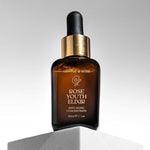
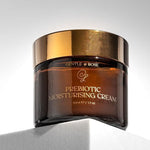
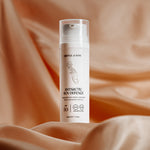
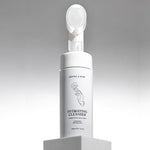
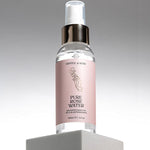



Leave a comment
Please note, comments must be approved before they are published